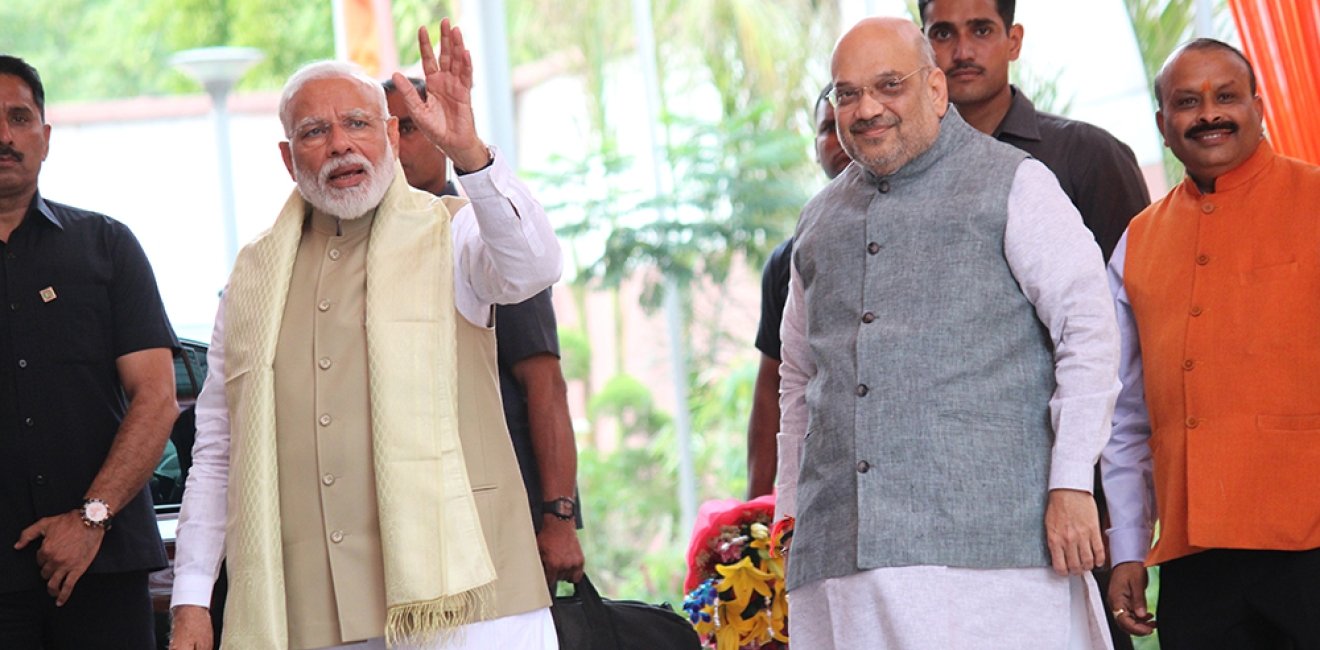
A blog of the Indo-Pacific Program
On May 23, India’s ruling Bharatiya Janata Party (BJP) won a resounding victory in national elections. While many analysts and observers had expected a repeat victory—given the struggles of the Congress Party to cobble together a formidable opposition coalition and given the sheer popularity of Prime Minister Narendra Modi—few had expected the BJP to win by such a large margin. The BJP will now come to power, just as it did after a similar landslide win in 2014, with a large mandate to pursue a number of key objectives. These include domestic goals such as pushing through an economic reform plan that floundered during its first term, and pursuing a Hindu nationalist agenda that has worried religious minorities and rights activists.
The BJP’s large mandate also gives it the opportunity to continue the robust foreign policy it carried out during its first term—one that entailed in part efforts to burnish India’s credentials as a key player on the world stage and a rising power. Over the last five years, the Indian government under Modi also made major efforts to strengthen an already fast-growing relationship with Washington.
Washington has come to view India, with Modi at the helm, as a key partner in Asia.
Indeed, the BJP’s triumph should be a largely positive outcome for U.S. foreign policy. Washington has come to view India, with Modi at the helm, as a key partner in Asia, particularly since the Trump administration rolled out its Indo-Pacific strategy. U.S. and Indian security interests strongly align over countering the threat of terrorism in South Asia and China’s deepening footprint across Asia.
To be sure, the bilateral relationship enjoys a multiparty consensus in both countries, so the election was unlikely to disrupt ties. But Modi’s return ensures continuity in the fast-growing U.S.–India security partnership, which has advanced several foundational defense agreements. These accords enable the U.S. and Indian militaries to enhance cooperation on communication technology and to use each other’s military facilities, particularly for refueling purposes — better positioning them to jointly address the China threat.
All this said, it won’t all be smooth sailing for U.S.-India relations. While security relations have soared in recent years, trade and economic ties have suffered. If the new Indian government has any desire to capitalize on the current trade war between Washington and Beijing and use that crisis as an opportunity to push even closer to the United States, than it will have its work cut out. Washington and New Delhi have had their own trade struggles, particularly as President Donald Trump has pushed for harsher tariffs on India. One big question in the coming weeks and months will be whether Modi uses his fresh mandate to push back against Washington on the commercial front, or if instead he seeks some type of compromise or common ground. (On June 10, the Asia Program will be hosting an event on the impact of the election results on U.S.-India economic relations.)
More broadly, the BJP’s victory could pose some problems for U.S. policy.
More broadly, the BJP’s victory could pose some problems for U.S. policy. The ruling party’s triumph gives it a resounding mandate to continue espousing its brand of Hindu nationalism. The divisive ideology breeds discrimination and intolerance, heightening the risk of communal violence and other instability.
For U.S. officials and investors, the specter of America’s most important bilateral partner in South Asia becoming a less stable place is nothing to sneeze at.
The bottom line? Modi’s win should bring ample benefits to U.S. policy, but these benefits shouldn’t be overstated.
This post is an expanded version of a short article published for Axios Expert Voices on May 23.
Image: Madhuram Paliwal / Shutterstock.com
Follow Michael Kugelman, deputy director of the Asia Program and senior associate for South Asia, on Twitter @MichaelKugelman.
The views expressed are the author's alone, and do not represent the views of the U.S. Government or the Wilson Center. Copyright 2019, Asia Program. All rights reserved.
Author


Indo-Pacific Program
The Indo-Pacific Program promotes policy debate and intellectual discussions on US interests in the Asia-Pacific as well as political, economic, security, and social issues relating to the world’s most populous and economically dynamic region. Read more





